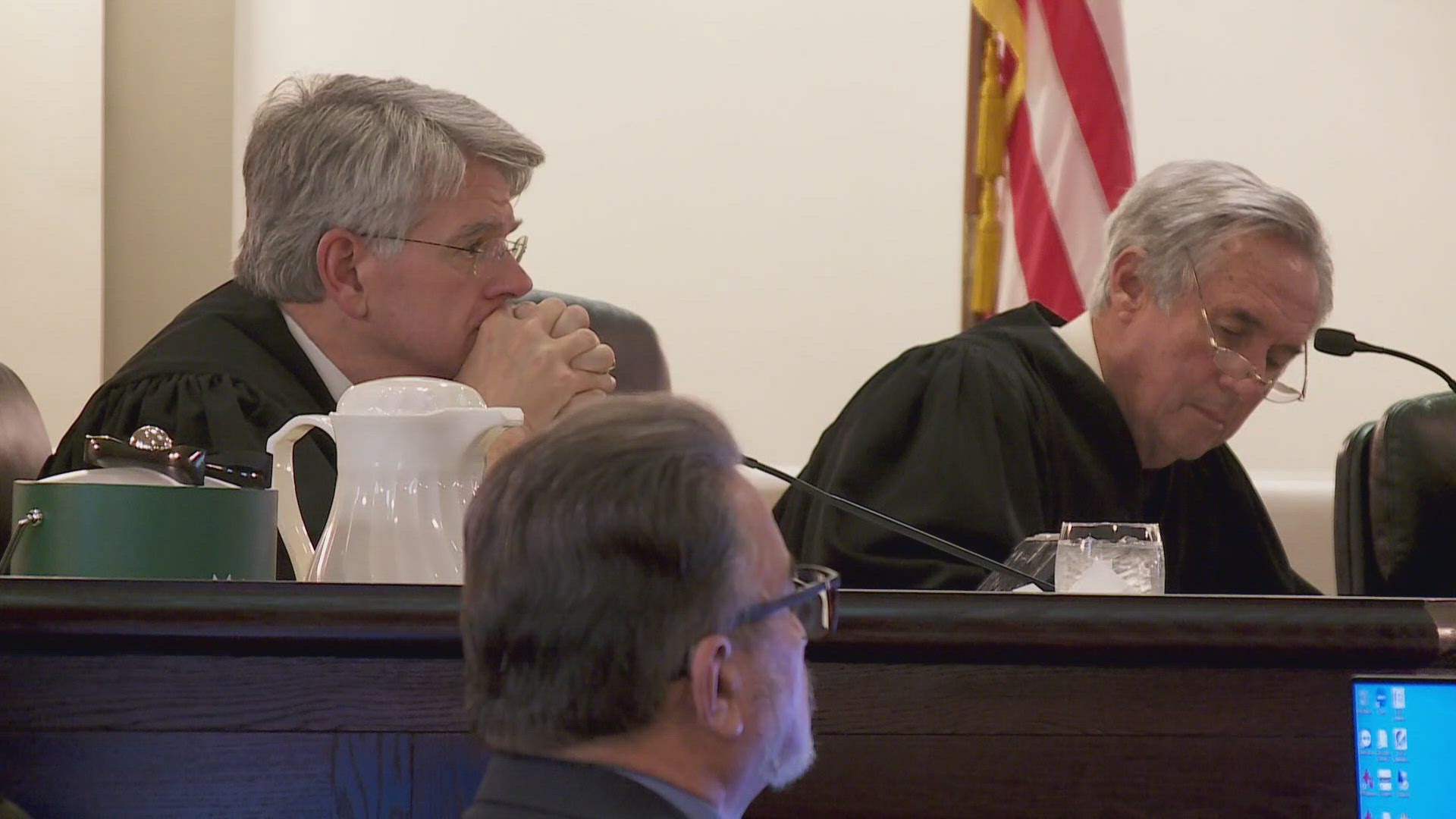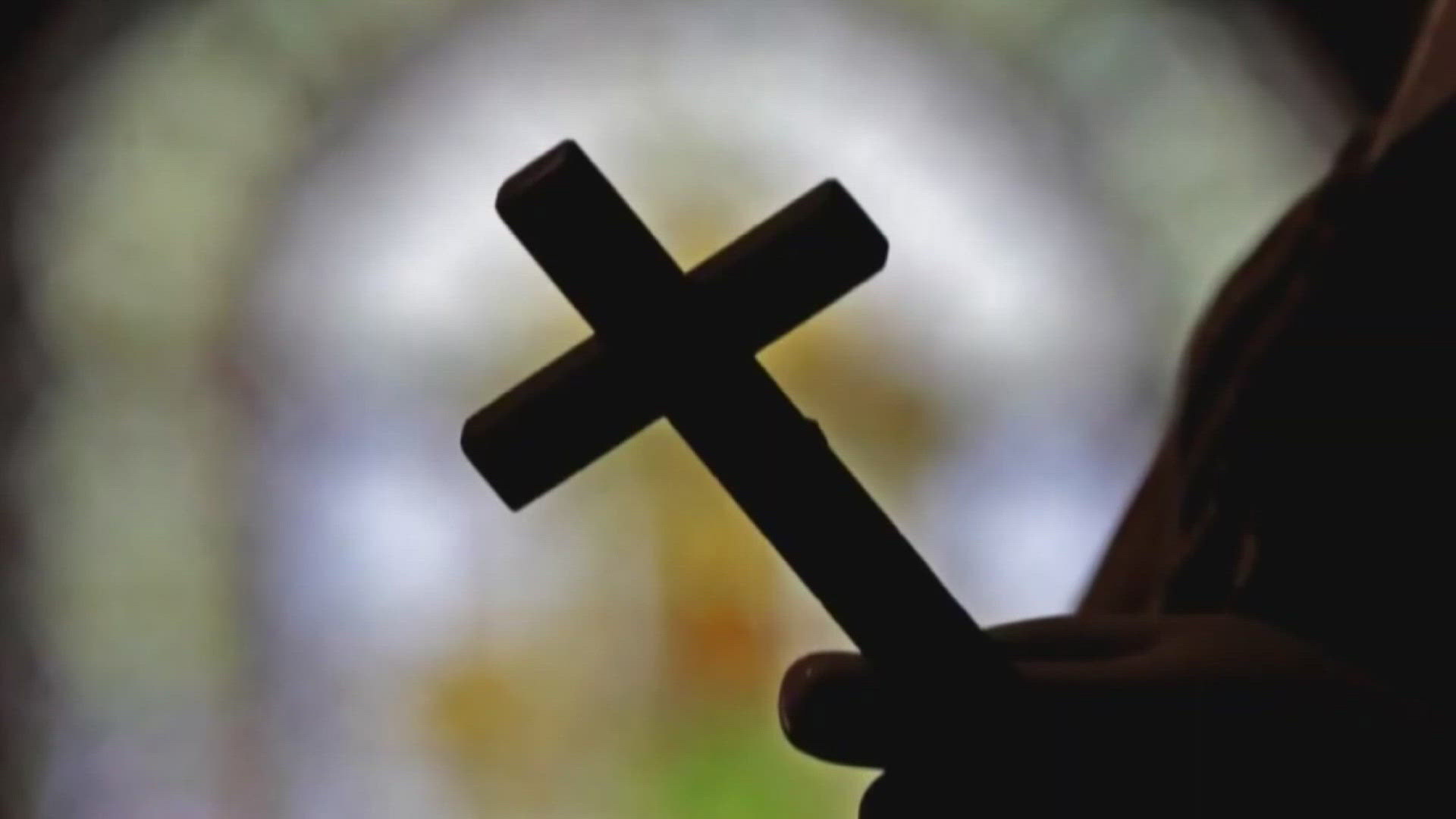NEW ORLEANS — The Roman Catholic Diocese of Lafayette challenged the constitutionality of a state law that let child molestation victims sue for long-ago abuse. The Louisiana Supreme Court rejected it.
The Archdiocese of New Orleans is offering abuse victims less than 10% of what they are requesting in a bankruptcy settlement, in part by arguing the so-called “lookback window” law doesn’t apply to more than 600 abuse claims filed.
And now, a third Roman Catholic organization is taking another bite at the apple, asking a federal judge to strike down the same Louisiana law.
Behind this latest effort are the Dominican Sisters of Peace in Baton Rouge and a law firm that boasts about having represented Catholic institutions in court for more than a century.
The law which the sisters and their Denechaud and Denechaud attorneys are targeting doesn’t exclusively apply in cases of Catholic clergy abuse. But the state Supreme Court’s decision to uphold the lookback window had major implications for Denechaud’s most prominent client: the Catholic archdiocese of New Orleans.
The archdiocese – Louisiana’s largest – filed for federal bankruptcy protection in 2020 after being faced with numerous lawsuits related to a decades-old clerical molestation crisis. Archdiocesan attorneys long maintained that those cases had been filed years beyond pertinent deadlines, or statutes of limitation, meaning claimants had the choice of either settling for relatively cheap or potentially getting nothing.
The sisters are challenging the constitutionality of the lookback window in response to a lawsuit from a man who alleges being sexually abused as a child at a parochial school in Baton Rouge. They and their attorneys maintain that prior Louisiana law gave them the right to not be sued past applicable statutes of limitation, and to remove that right now is unconstitutional.
That argument echoes the Lafayette diocese’s unsuccessful one before the state Supreme Court. But the Dominican Sisters have now taken that position to Baton Rouge’s federal courthouse. In that court house, they can appeal any unfavorable ruling on the issue to the U.S. 5th Circuit – widely perceived as an extremely conservative bench that usually favors religious organizations.
“If anyone could undo the will of the Louisiana state supreme court, the Catholic church can and will,” the plaintiff in that case said in an interview with the Guardian.
The plaintiff said he considered it hypocritical for a prominent Catholic leader like New Orleans Archbishop Gregory Aymond – who heads the state’s Conference of Catholic Bishops – to publicly profess his moral support for the efforts by victims of clergy molestation to be made whole while his attorneys are simultaneously “continuing to fight” maneuvers that improve the potential value of survivors’ claims for damages.
That plaintiff’s attorney, Kristi Schubert, says she isn’t surprised by the constitutional challenge. She said it has no merit, repeats failed arguments, and comes off as a cynical delay tactic by the church to save money.
“If Catholic groups use bogus constitutional challenges to delay justice for another three years, we could see 15-20% of survivors die, give up hope, or otherwise drop out of litigation,” Schubert said. “That would save the Church millions upon millions of dollars.”
When Louisiana’s legislature in 2021 enacted the lookback window eliminating those statutes of limitation, including retroactively for a limited period, the bishops' conference was the only institution that opposed the law’s passage.
Then, in March, the Lafayette Diocese persuaded the state Supreme Court to nullify the lookback law. The Lafayette church’s effort received a supportive legal brief from the bishops' conference, which Denechaud prepared.
The Supreme Court, by a vote of 4-3, at first said alleged abusers as well as those who enabled them had a “vested” property right to not be sued after the statute of limitation expired. But two justices, Scott Crichton and Piper Griffin, subsequently changed their minds.
Crichton decided that he had given too much weight to those rights over abuse survivors’ rights to due process. And Griffin noted that the most recent version of Louisiana’s constitution – ratified in 1974 – eliminated mention of those vested rights.
Both judges then reversed their votes, a rare outcome that led to the lookback law being upheld by a margin of 5-2 in June.
That reversal hasn’t gone well with Louisiana’s Catholic institutions in particular. The archdiocese offered last week to settle its bankruptcy case for $62.5 million based on the assumption that the lookback window doesn’t apply to more than 500 clergy abuse claimants, who are collectively seeking about $1 billion.
In a court filing on Sept. 13, the church said it “believes that the Revival Window is inapplicable to the Child Sexual Abuse Proofs of Claim Filed in the Chapter 11 Case. The (archdiocese) notes that the (survivors and their lawyers) may disagree with the (church’s) position.” The archdiocese contended in a statement Friday that federal law shields it from actions taken after it filed for bankruptcy protection, though the abuse claimants dispute that.
“Regardless of the lookback window, if our plan is confirmed, it calls for a trustee and claims reviewer selected by the abuse survivors to value the claims and determine the payments to abuse survivors from a mutually agreed upon monetary settlement,” the statement added. “In our plan, the archdiocese would have no role in valuing the claims.”
Yet another Catholic organization seeking an alternate way to attack the state Supreme Court ruling is the Jesuit Catholic religious order and its namesake high school in New Orleans.
In a state lawsuit filed by a plaintiff alleging childhood sexual molestation at the hands of an abusive custodial crew, the Jesuits and the school have continued questioning the constitutionality of the lookback law, even using some of the same Denechaud lawyers. Jesuit High filed legal briefs in support of the Lafayette diocese’s unsuccessful attempts to overturn the lookback law, too.
To the plaintiff in that case and his attorneys, Richard Trahant, Soren Gisleson, and John Denenea, there is only one conclusion to draw from that.
“These organizations don't know when to take 'no' for an answer,” they said in a statement.
Denechaud and Jesuit did not immediately respond to requests for comment.
► Get breaking news from your neighborhood delivered directly to you by downloading the new FREE WWL-TV News app now in the IOS App Store or Google Play.


